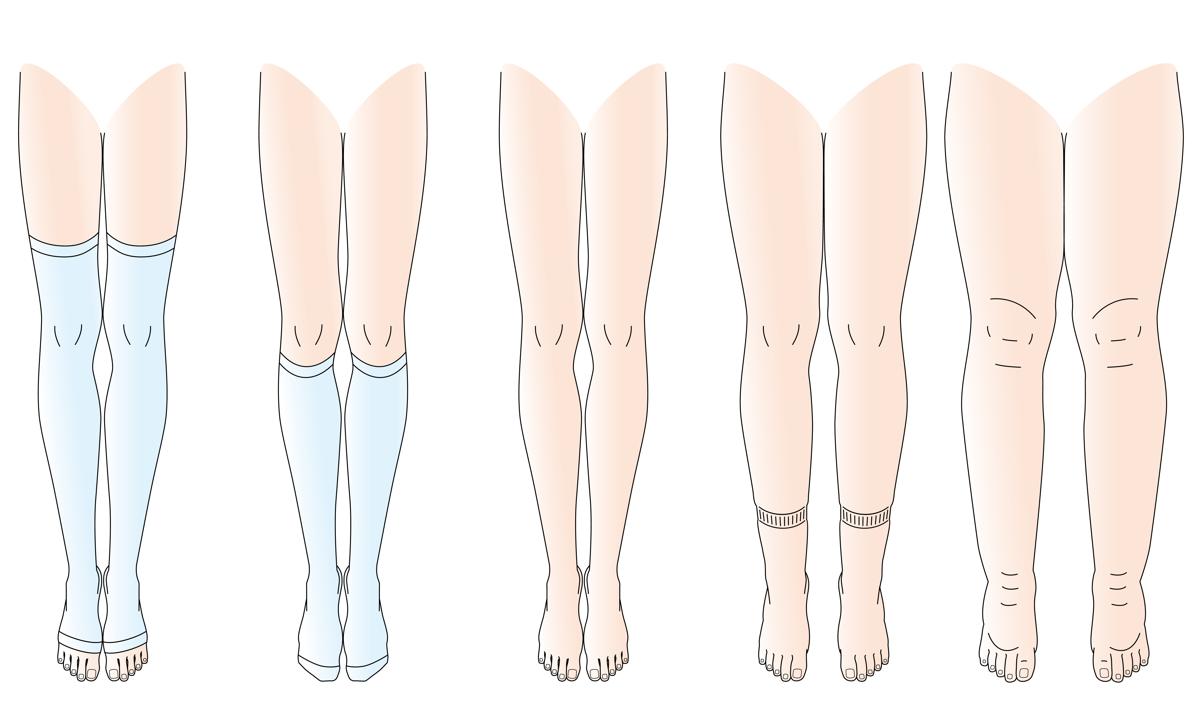
Edema in legs is caused due to the retention of water in the tissues. It is necessary to undergo differential diagnosis for this leg condition so that the exact cause is determined and appropriate treatment administered.
Leg edema or a swelling in the legs is a condition where there is an abnormal accumulation of fluids in the tissues. In fact leg edema is the medical term for swelling in the legs or water retention in legs. Edema that occurs in the feet and legs in commonly referred to as peripheral edema and is caused due to the accumulation of serum in the spaces between the connective tissues. The fluids in the body are normally stored in two places, one in the blood vessels and the other place is the interstitial spaces or the connective tissues of the cells.
Edema or swelling in the legs can be a very discomforting situation. The swelling can occur in one or both the legs and is more noticeable if the edema is present in the lower part of the leg, especially in the calf muscle region. Edema may occur if there is any internal injury or trauma that has affected the leg or can also occur due to kidney or multiple organ failure.
Reasons for Swollen Legs
Though the main cause of leg edema is accumulation of fluid in the lower extremities, there are also several other causes for noticing leg swelling, which are listed as under:
- Prolonged standing or sitting is one of the most common causes of edema in the legs. Standing or sitting for a long time can decrease the pressure of circulation and push the blood towards the lower part of the legs where it gets accumulated, leading to a swelling in the legs.
- Edema can also be a result of some allergic reactions that may cause swelling. These allergic reactions can be triggered by food allergies or insect stings, where the body tends to react to the histamines produced.
- Edema in the legs can be a side effect to certain types of medication like antidepressants, drugs to lower high blood pressure and steroids. Some people also show a reverse reaction for anti-inflammatory drugs like ibuprofen, which is a drug to reduce swelling.
- During pregnancy, there is swelling in the ankles, feet and toes, which is quite normal. During this time, as the uterus expands to accommodate the growing fetus, it applies pressure on the vena cava, the vein that carries blood from the legs. The amount of fluid also increases in the body during the childbearing years to provide nourishment to the fetus. Excess fluid tends to get accumulated in the feet, leading to swollen ankles in pregnancy.
- A condition known as varicose veins, where the veins become enlarged and painful are also causes of swollen legs and ankles.
- A blood clot that may obstruct the normal flow of blood and serum can lead to edema in legs.
- A dangerous health condition that may result in water retention in the legs and may require medical attention is congestive heart failure. Fluid tends to build up in the lungs if there is a failure on the left side of the heart. When the right side of the heart fails, it leads to accumulation of excess fluid in the legs, leading to swelling.
- Some other conditions that cause leg edema are deep vein thrombosis, Baker’s cyst, cellulitis and lymphedema, caused due to an infection called filariasis.
Reducing Swelling in the Leg
Leg edema differential diagnosis depends on the cause of the swelling of the legs. Given below are some methods of treatment for leg swelling;
- Excessive intake of salt in the diet can cause retention of fluid. Reducing the amount of salt can decrease fluid retention.
- Keeping the legs elevated above the level of the heart, with the help of pillows for about half an hour 3 to 4 times everyday can reduce the swelling in the legs.
- Brisk walking for about half an hour can decrease edema by sending the excess fluid back to the heart.
- Taking diuretics like spironolactone, thiazide and furosemide will make the kidneys to increase the output of sodium and water from the body, thus reducing the swelling.
Leg edema may not be a serious health condition, but it can be a sign of any other underlying health related disorder. If you experience swelling in either leg that increases day-by-day, consult your doctor.


